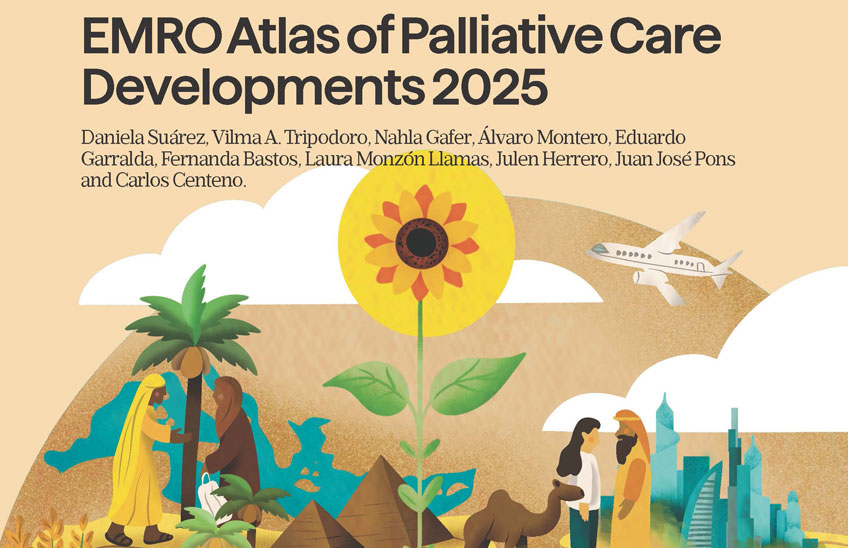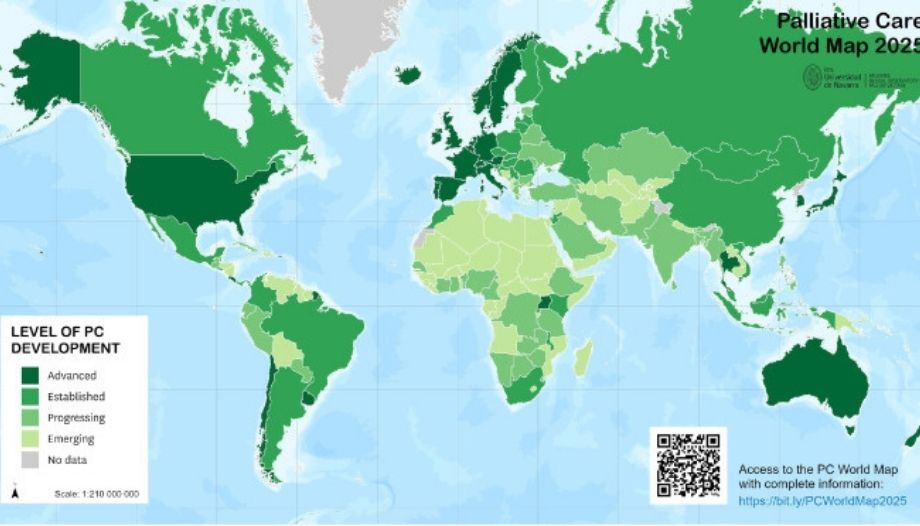More than half of the world's countries do not have access to basic palliative care services. This is all the more relevant when you consider that health-related suffering will grow by almost 90 percent between now and 2060 if palliative care is not expanded. The problem will be much greater if no action is taken.
This has been revealed by the World Map of Palliative Care promoted by the Global Palliative Care Observatory ‘Atlantes’ of the Institute for Culture and Society (ICS) of the University of Navarra. The study, led by Drs. Carlos Centeno and Vilma Tripodoro, includes the first global ranking in this field, with information from 201 countries and territories.
The result shows a worrying map marked by inequality. The countries with the highest levels of socioeconomic development account for the majority of the world's palliative care systems.
Germany, the Netherlands and Taiwan in the lead
The ranking, unpublished at the time of publication, is headed by Germany, followed by the Netherlands and Taiwan. At the bottom of the table, ten countries share the last position: Antigua and Barbuda, Mali, Mauritania, Nauru, Niger, St. Kitts and Nevis, St. Vincent and the Grenadines, Suriname, Tuvalu and Yemen.
“This is an unprecedented ranking: for the first time there is a worldwide ranking of palliative care with comparative data. And it is not just a static map. It makes it possible to see which country is at the top, who is making progress and who is lagging behind,” the researchers explain.
Spain, located at the advanced level, ranks 28th, behind Uganda (26th).
This year's theme, universal access to palliative care.
The report was published by the scientific journal ‘Journal of Pain and Symptom Management’, elaborated with a rigorous methodology that follows the parameters of the World Health Organization (WHO), of which ‘Atlantes’ is a collaborating center.
It was supported by the Worldwide Hospice Palliative Care Alliance (WHPCA). Its launch coincided with the celebration of World Hospice Palliative Care Day (October 11). This year's theme was “Keeping the Promise: universal access to palliative care.
Six dimensions
The world map has assessed 14 indicators that allow palliative care to be analyzed in the light of six dimensions: empowerment of society, health policies, research, education, use of essential medicines and provision of palliative care for adults and children. The result allows countries to be classified into four levels of development: emerging (40%), progressing (28%), established (17%) and advanced (14%).
In general, most countries with a higher human development index (HDI) have the majority of palliative care systems at advanced level 6, and those classified as lower income countries are at the emerging level. However, the cases of Uganda and Thailand, with significant economic constraints, “indicate that political will, local strategies and targeted investment can partially break the structural correlation,” Centeno and Tripodoro note.

More than 3 million people in the Eastern Mediterranean suffer from
On the other hand, the Atlas of Advances in Palliative Care in Eastern Mediterranean Countries 2025, prepared by Atlantes, has analyzed the 22 countries that comprise the region. From Afghanistan or Bahrain, Egypt, Iran, Iraq, Jordan, Kuwait, Lebanon or Libya, to Morocco, Oman, Pakistan, Qatar, Saudi Arabia, Sudan, Syria, Tunisia, United Arab Emirates or Yemen.
In this vast Eastern Mediterranean region, 3.2 million people experience health-related suffering requiring palliative care each year, including around 300,000 children.
Main causes of suffering serious
In the so-called Eastern Mediterranean, the main causes of serious health-related suffering are cancer, cerebrovascular diseases, premature births, severe injuries and liver problems. To alleviate these ailments, a total of 258 specialized palliative care services are available in the region. Only in Kuwait and Saudi Arabia are these services offered systematically.
On average, there are 0.04 services per 100,000 inhabitants, well below international standards. The World Health Organization recommends 2 services per 100,000 inhabitants.
On the other hand, access to essential medicines remains unequal. Seven countries offer essential medicines in urban primary care centers. Of these, only Saudi Arabia, the United Arab Emirates and Tunisia have immediate-release oral morphine available on a regular basis.








